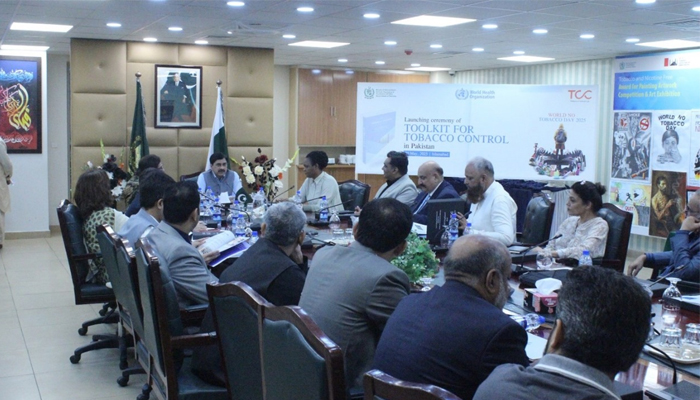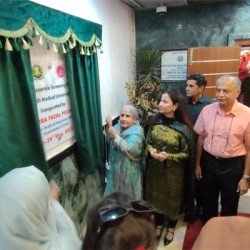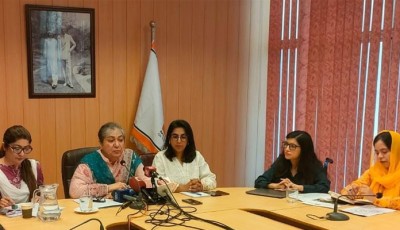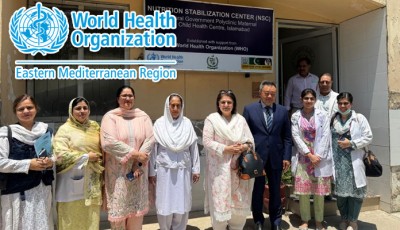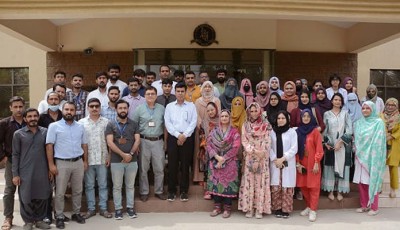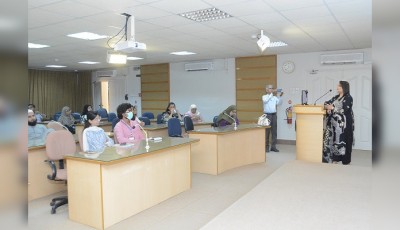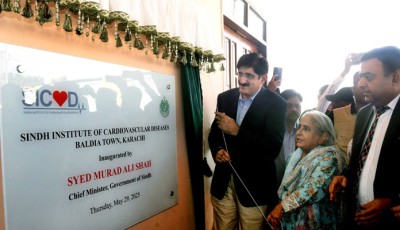ISLAMABAD: On the occasion of World No Tobacco Day 2025, Pakistan’s Ministry of National Health Services, Regulations and Coordination, in collaboration with the World Health Organization (WHO) and key partners, reaffirmed their commitment to curb the devastating impact of tobacco on the nation’s health and economy.
Tobacco use claims approximately 164,000 lives in Pakistan each year and imposes a staggering PKR 700 billion (US$2.5 billion) in economic losses, due to healthcare costs and productivity losses.
At a ceremony held at the Ministry, stakeholders launched the Toolkit for Tobacco Control in Pakistan, developed by the Tobacco Control Cell in partnership with national and international tobacco control experts. The Toolkit aims to strengthen the implementation of the WHO Framework Convention on Tobacco Control (WHO FCTC), in support of Sustainable Development Goal 3.a.
Dr. Shabana Saleem, Director General Health, welcomed participants at the launch, and Dr. Arsalan Hyder, National Focal Person for WHO FCTC, presented the toolkit’s key features. The Toolkit is designed to support focal persons, master trainers, authorized officers, and law enforcement personnel with practical strategies to reduce tobacco use across Pakistan.
Chairing the event, Additional Secretary Health Laeeq Ahmad reaffirmed Pakistan’s commitment:
“As a proud signatory to the WHO Framework Convention on Tobacco Control, Pakistan remains firmly committed to implementing comprehensive, evidence-based measures to reduce tobacco use. I want to thank all our partners, including WHO, for their unwavering support. Together, let us work toward a tobacco-free Pakistan—a nation where our people can live, work, and thrive in an environment that values health, safety, and well-being.”
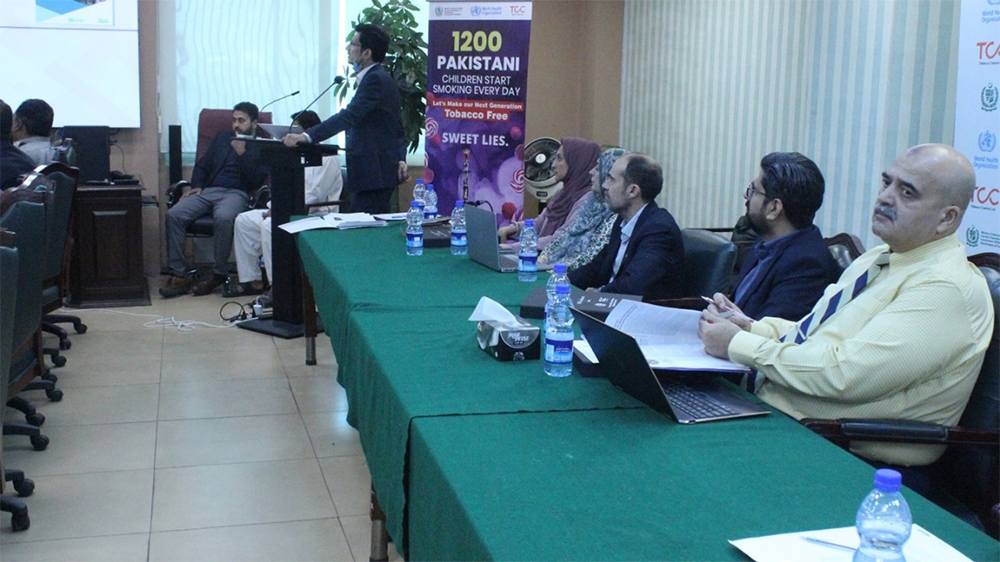
The Ministry and WHO jointly emphasized that all forms of tobacco products, regardless of brand or manufacturer, are extremely harmful to health and disproportionately affect children, teenagers, and other vulnerable groups.
The collaborative strategy includes:
- Higher taxation on tobacco products
- Comprehensive bans on tobacco advertising, promotion, and sponsorship
- Standardized (plain) packaging to reduce product appeal
- Tobacco- and nicotine-free public spaces
- Stricter enforcement of tobacco control laws
- Medical and behavioral support for quitting tobacco
WHO Deputy Representative in Pakistan, Ellen Thom, delivered a powerful message:
“The 164,000 people lost to tobacco each year are not just numbers—they are parents, workers, sons, daughters, and even children. Let us unmask the appeal. Tobacco is not a candy; it is a killer. We must protect our children, our families, and our communities.”
Research consistently shows that policies such as tobacco taxation not only help reduce consumption and prevent disease but also boost government revenues and lessen the burden on health systems.
Since ratifying the WHO FCTC in 2004, Pakistan has received sustained technical assistance from WHO to support tobacco tax policy reforms, track-and-trace systems, and broader tobacco control efforts through the Ministry of Health and Federal Board of Revenue (FBR).
The event marked a pivotal step toward strengthening public health policy, protecting youth, and building a healthier future for Pakistan.
About WHO:
Founded in 1948, the World Health Organization (WHO) is the United Nations’ agency for public health. It works with 194 Member States across 150+ countries to promote health, ensure safety, and serve the vulnerable.
